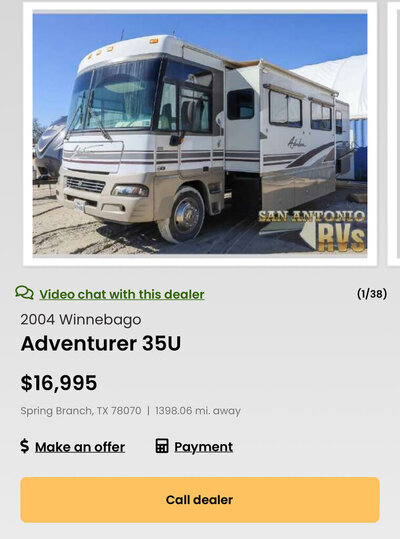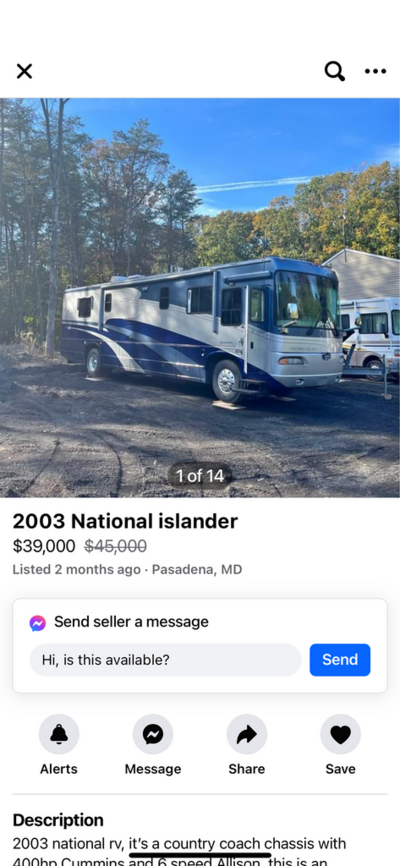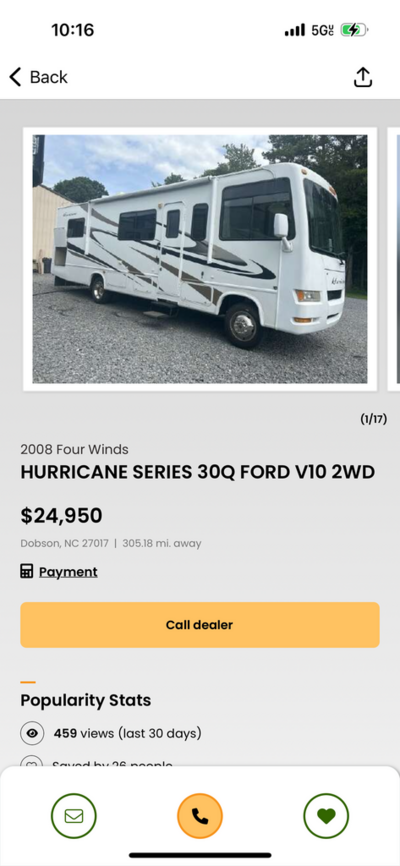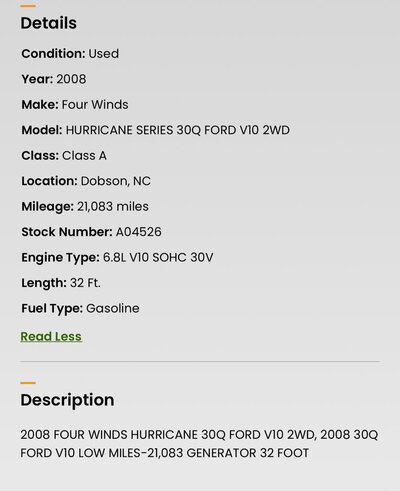Greetings all!
I am new to the world of RVs, driven tractor trailers for years. I have started a new hobby of drag racing. I was looking at pick up trucks but for the price of a new or used one and my budget, it makes more sense to me to have the luxury of an RV.
So I have been in RV Trader looking and these towing capacity and hitch ratings have me seeking help.
I plan to purchase a Class A motorhome. I prefer diesel. My race car weighs 2600 lbs the trailer is about 4000 lbs and I’d just add another 1000 lbs for the miscellaneous tools and other things in the trailer. So in total 8,000 lbs give or take.
I would need to have a RV with a 10k hitch?
Should I stay away from gasoline?
How’s the Ford V10?
If it says a RV has a 5k hitch rating, is it possible to buy a bigger hitch and is it worth doing that?
All help is appreciated as I try to navigate through this process. I’ve attached some pictures of some of the Motorhomes I’ve been looking at.
Thanks in advance.
I am new to the world of RVs, driven tractor trailers for years. I have started a new hobby of drag racing. I was looking at pick up trucks but for the price of a new or used one and my budget, it makes more sense to me to have the luxury of an RV.
So I have been in RV Trader looking and these towing capacity and hitch ratings have me seeking help.
I plan to purchase a Class A motorhome. I prefer diesel. My race car weighs 2600 lbs the trailer is about 4000 lbs and I’d just add another 1000 lbs for the miscellaneous tools and other things in the trailer. So in total 8,000 lbs give or take.
I would need to have a RV with a 10k hitch?
Should I stay away from gasoline?
How’s the Ford V10?
If it says a RV has a 5k hitch rating, is it possible to buy a bigger hitch and is it worth doing that?
All help is appreciated as I try to navigate through this process. I’ve attached some pictures of some of the Motorhomes I’ve been looking at.
Thanks in advance.




